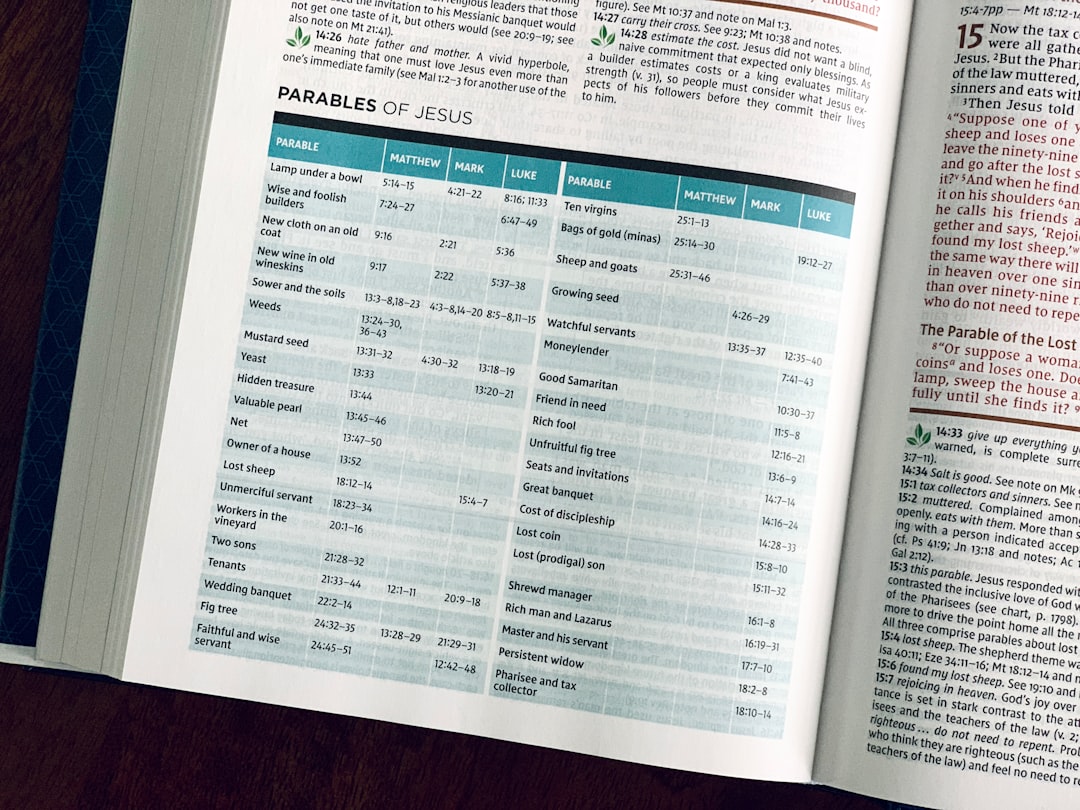When it comes to the concept of sin, there are a multitude of ways in which someone can act in ways that go against religious teachings. One important type of sin that is often overlooked is the notion of presumptuous sins. This type of sin is characterized by arrogance and a lack of humility, which can lead to severe consequences for those who transgress. In this blog post, we’ll explore what presumptuous sins are, how they relate to Christianity, and what the consequences of this type of sin can be. Keep reading to learn more!
The Definition of Presumptuous Sins

As a Christian, understanding the concept of presumptuous sins is crucial to living a righteous and holy life in the eyes of God. Simply put, presumptuous sins can be defined as acts of arrogance or rebellion against God’s high and holy standards. These are actions where one knowingly and deliberately defies God’s divine laws or commands.
A presumptuous sin can manifest itself in numerous ways. It can be a thought, word, or deed. Still, they all share the commonality of being willful, premeditated acts of rebellion against God, often driven by pride or a sense of entitlement.

Examples of Presumptuous Sins in Christianity include blasphemy, sacrilege, disobedience, and temptation. These are acts characterized by an intentional and arrogant disregard for God’s divine authority, resulting in harm to oneself and others.
As Christians, we are called to follow specific spiritual laws and principles to live a life guided by our religious beliefs. However, presumptuous sins represent a sin of the heart, and it can be challenging to recognize when one is committing such a transgression.
Many biblical teachings on presumptuous sins emphasize the importance of humbleness, remorse, and guilt in recognizing and avoiding them. Pride is often at the root of such thinking, and one of the ways to overcome it is by connecting to God and seeking spiritual guidance.
The consequences of presumptuous sins are severe, as they result in divine wrath, anger, and displeasure. It is essential to understand that while God is a loving and forgiving God, divine justice demands punishment for those who violate God’s laws. The punishment may be immediate, or it may come over time, but the consequences of such sins cannot be avoided.
Fortunately, God’s mercy knows no bounds, and repentance and forgiveness can help overcome the consequences of presumptuous sins. However, one must take responsibility for their actions, confess their wrongdoing, and demonstrate genuine remorse to receive forgiveness fully.
In conclusion, understanding the concept of presumptuous sins can help one avoid falling into the trap of arrogance and pride that can lead to transgressions. As Christians, we must follow God’s divine laws and principles, remain humble and seek forgiveness when we fall short. By doing so, we can live a life pleasing to God and overcome any temptations that may arise.
Examples of Presumptuous Sins in Christianity
In Christianity, presumptuous sins are defined as intentionally denying the spiritual laws and biblical teachings in favor of our own pride and arrogant presumption. Presumptuous sins are sins of the heart and are often caused by religious beliefs that are not aligned with what the Bible teaches. As Christians, it’s important to understand the consequences of these sins and how to avoid them.
Some examples of presumptuous sins in Christianity include blasphemy, sacrilege, disobedience, and temptation. Blasphemy refers to speaking ill of God or using His name in vain. Sacrilege is the act of violating something that is considered holy, such as a church or a religious artifact. Disobedience is when we disobey God’s commands and do what we want instead of what He tells us to do. Temptation is when we are enticed by evil and choose to yield to it instead of resisting.
Presumptuous sins can lead to divine justice, divine punishment, and ultimately, divine wrath. When we commit these sins, we bring upon ourselves the displeasure of God, and we invite His wrath upon us. This can manifest in different ways, such as sickness, financial problems, relationship breakdowns, or emotional struggles. Ultimately, the greatest consequence of presumptuous sins is being separated from God for eternity.

It’s important to understand that even when we commit presumptuous sins, there is room for repentance and forgiveness. God is gracious and merciful, and He forgives those who come to Him with a humble heart, remorse, and guilt. Repentance is the first step in overcoming arrogance in Christianity. We must acknowledge our wrongdoing and ask for forgiveness, both from God and from those we have wronged.
Overcoming arrogance in Christianity requires spiritual guidance and a willingness to obey God’s commands. We must learn to humble ourselves and put ourselves under His authority. Through prayer, reading the Bible, and seeking godly counsel, we can grow in our faith and become more Christlike.
In short, presumptuous sins are a serious matter in Christianity, and we must be careful not to let our pride and arrogance lead us away from God’s will. By understanding the consequences of these sins and seeking repentance and forgiveness, we can overcome them and live a life that is pleasing to God.
Biblical Teachings on Presumptuous Sins
Presumptuous sins, also known as arrogant or presumptuous behavior, are not taken lightly in Christianity. The Bible warns against the sin of pride and speaks on how it can lead to disastrous consequences. Here are some biblical teachings on presumptuous sins:
-
Proverbs 16:18 – “Pride goes before destruction, a haughty spirit before a fall.” This well-known verse emphasizes how pride can lead to a downfall and destruction.
-
James 4:6 – “But he gives more grace. Therefore it says, ‘God opposes the proud, but gives grace to the humble.'” This verse shows how pride can put a person at odds with God, as God opposes the proud.
-
1 Peter 5:5-6 – “Clothe yourselves, all of you, with humility toward one another, for ‘God opposes the proud but gives grace to the humble.’ Humble yourselves, therefore, under the mighty hand of God so that at the proper time he may exalt you.” This passage highlights the importance of humility and how it can lead to God exalting a person.
-
Psalm 19:13 – “Keep back your servant also from presumptuous sins; let them not have dominion over me! Then I shall be blameless, and innocent of great transgression.” This verse emphasizes the need to actively avoid presumptuous sins and the importance of striving towards blamelessness.
-
Proverbs 11:2 – “When pride comes, then comes disgrace, but with the humble is wisdom.” Here, the Bible highlights how wisdom can come with humility, while pride can lead to disgrace.
It is important to note that the Bible teaches forgiveness and repentance for all sins, including presumptuous sins. However, it also stresses the importance of recognizing and humbly repenting for these sins. When we become aware of our arrogance, we need to repent and ask for forgiveness from God and those we may have harmed.
Overall, biblical teachings on presumptuous sins emphasize the importance of humility and the dangers of pride. By understanding these teachings and actively striving towards humility, we can work towards living a more moral and righteous life.
The Consequences of Presumptuous Sins
« Uncovering the Mystery of Dagon in the Bible: A Deity, a Fish, or Something Else Entirely?
The Fascinating Story of Joab: Commander, Loyal Brother, and the Ultimate Betrayal in the Bible »
Presumptuous sins are not only dangerous but also carry serious consequences in the Christian community. The bible teaches that pride and arrogance are sins of the heart, and they are the root causes of presumptuous sins. Presumptuous sins are a direct violation of spiritual laws and divine justice; hence, they attract divine punishment and displeasure.
The consequences of presumptuous sins can be seen from biblical stories. Examples include the story of David, who committed adultery with Bathsheba and murdered her husband Uriah, and Saul’s disobedience to God’s commands. David was severely punished by God, and his actions led to his kingdom being plagued with years of war and unrest. Similarly, Saul lost his kingship due to his disobedience, and his lineage was removed from the throne.
Other consequences of presumptuous sins include guilt, remorse, and feelings of shame. Arrogance and pride can drive individuals away from spiritual guidance, and the temptation to commit sin can become a regular occurrence in their lives. The devil often uses arrogance and pride to lure people into committing sin and cause them to become distant from God.
Divine wrath, anger, and divine displeasure are just some of the consequences that presumptuous sins carry. Blasphemy and sacrilege or wrongdoing against religious beliefs and values can bring about divine punishment, which can manifest in various forms such as sickness, poverty, or even death.

However, despite the severity of presumptuous sins, Christian teachings also offer a path to redemption. Repentance and forgiveness can help individuals overcome arrogance and pride to become humble and remorseful. It is essential to acknowledge one’s wrongdoing and ask for forgiveness from God and the person they have wronged.
In conclusion, presumptuous sins are a severe transgression in the Christian community. They attract divine punishment and are a direct violation of spiritual laws. However, repentance and forgiveness can help individuals overcome their arrogance and pride to become humble and remorseful. It is crucial to seek spiritual guidance and avoid the temptation to commit sin. By doing so, Christians can remain faithful to their beliefs and avoid the consequences of presumptuous sins.
Repentance and Forgiveness for Presumptuous Sins
The consequences of committing presumptuous sins can be severe and long-lasting, which is why it is important to recognize and address them promptly. While experiencing feelings of guilt and remorse is a natural reaction, it is essential to take the necessary steps towards repentance and seeking forgiveness.
Here are some practical ways to seek repentance and forgiveness for presumptuous sins:
-
Acknowledge the wrongdoing: The first step towards repentance is recognizing that you have violated spiritual laws and biblical teachings. It is essential to take full responsibility for your actions and understand the gravity of the situation.
-
Confess your sins: Confessing your sins before God and those you have wronged is a vital step towards healing and restoration. Confession should be sincere and honest, which requires humility and vulnerability.
-
Make things right: In some cases, reparations must be made to those who have been hurt or adversely affected by your actions. This could include asking for forgiveness, offering compensation, or making a public apology.
-
Repentance: Biblical teachings emphasize the importance of turning away from sin and changing your ways. This requires a sincere desire to change your thinking, attitude, and behavior patterns, which can be achieved through the help of the Holy Spirit and spiritual guidance.
-
Seek forgiveness: Forgiveness is an essential aspect of the Christian faith, and it is necessary to seek forgiveness from God and those who have been hurt by your actions. Forgiveness may not always be granted, but it is essential to ask for it nonetheless.
-
Overcome arrogance: Overcoming arrogance is critical to avoiding presumptuous sins in the future. By humbling yourself and seeking spiritual guidance, you can develop an attitude of humility and embrace a servant’s heart.

In conclusion, confessing and acknowledging your sins, seeking to make things right, and repenting must be done sincerely. God is merciful and willing to forgive those who seek forgiveness with a humble heart. However, it is up to the individual to take the necessary steps towards repentance and overcome arrogance to avoid presumptuous sins in the future.
Overcoming Arrogance in Christianity
As a Christian, it can be easy to fall into the trap of arrogance and presumption. This can manifest in many ways, from feeling superior to others due to your religious beliefs, to assuming that you are right and others are wrong about certain spiritual laws. However, it is important to understand that this kind of attitude is not only spiritually dangerous, but can have serious consequences in terms of your relationship with God.
One way to overcome arrogance in Christianity is to remember that we are all sinners, and that any perceived righteousness we have is only due to the grace of God. In other words, we cannot take credit for our own goodness, as it is a gift from God. By realizing this, we can cultivate a spirit of humility and gratitude, and avoid looking down on others.
Another important step in overcoming arrogance is to seek spiritual guidance from trusted leaders and mentors. This can mean regular meetings with a pastor or spiritual advisor, or finding a Christian community where you can engage in discussions and learn from others. By being open to the perspectives of others, we can avoid getting stuck in our own assumptions and biases.
Of course, it is also important to resist temptation and avoid situations that can lead to arrogance, such as engaging in debates or arguments with others over religious beliefs. Instead, we should focus on fostering compassion and understanding, and seeking to build bridges with those who may not share our perspective.

Ultimately, the key to overcoming arrogance in Christianity is to cultivate a spirit of love and forgiveness. By recognizing our own capacity for wrongdoing and extending grace to others, we can avoid the pitfalls of arrogance and presumption, and live more fulfilling and meaningful lives as Christians.












